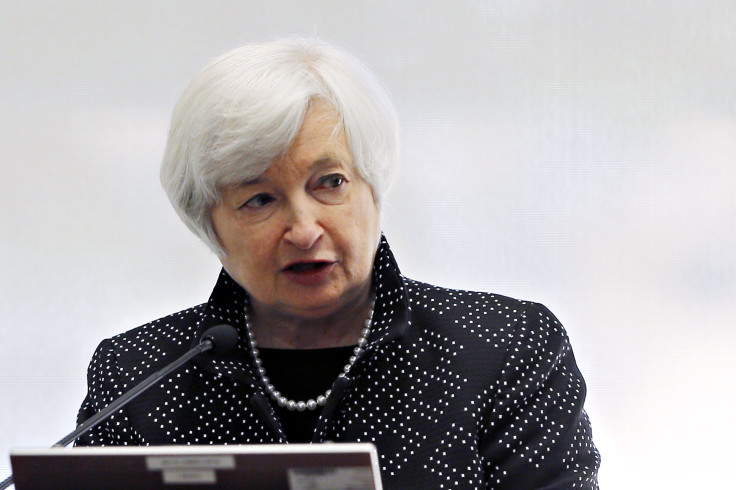Fed Chair Janet Yellen 'Greatly' Concerned About Rising Income Inequality

Federal Reserve Chair Janet Yellen said Friday she’s “greatly” concerned about growing economic inequality in the U.S. She highlighted four pillars of economic opportunity that if bolstered would narrow the wealth gap: resources available to children, like early childhood education; affordable higher education; private business ownership; and family inheritances among middle- and low-income earners.
In a speech at the Federal Reserve Bank of Boston, Yellen said inequality has widened in the U.S. in the past several decades to its greatest level since the 19th century, after 40 years of narrowing after the Great Depression.
“By some estimates, income and wealth inequality are near their highest levels in the past hundred years, much higher than the average during that time span and probably higher than for much of American history before then,” she said [transcript of prepared remarks here]. “I think it is appropriate to ask whether this trend is compatible with values rooted in our nation's history, among them the high value Americans have traditionally placed on equality of opportunity.”
The central bank's power to address income inequality is limited; all four of the areas Yellen listed are beyond the Fed’s reach. But the Fed has been criticized for helping Wall Street, and the wealthiest Americans, recover from the 2008 financial crisis by pouring easy money into the economy through asset purchases and low interest rates.
A recent report by Standard & Poor’s said income inequality and an education gap is hurting economic growth. Another S&P report said rising income inequality is hurting state tax revenues. And a report by IHS Global Insight concluded that though employment is back to pre-recession levels and rising, the jobs gained pay less than the jobs lost, with most of the wage gains going to the top income earners.
According to Gary Burtless, senior fellow and economist at the Brookings Institution, the wealthiest normally are first to recover wealth lost in a recession, and other income levels should follow.
The tepid pace of wage gains is a frequent focus of Yellen’s speeches. But following her predecessor Ben Bernanke, she has pointed to the Fed’s support for the housing market as proof that its economic stimulus is reaching Main Street.
In her speech Friday, Yellen cited Fed data showing that the bottom half of homeowners by wealth lost more than 60 percent of their home values between 2007 and 2013, while the wealthiest 5 percent lost only 20 percent of their home equity. She then noted, however, that the housing market recovery this year has boosted wealth for the middle- and low-net-worth households by nearly one-third.
Yellen didn't stray from her prepared remarks nor take questions to address the current volatility in financial markets. The Dow Jones Industrial Average is on its longest losing streak of the year amid concerns of slowing global economic growth. The Fed is watching several economic indicators to decide when to raise interest rates from their historically low levels. Hiking interest rates would increase borrowing costs and likely reduce consumer spending, the bulk of the economy's output.
"The recent market moves could help the Fed to hit the employment part of its dual mandate, but will take it further away from its inflation target," said Paul Ashworth, chief U.S. economist for Capital Economics, in a research note Friday. "While we don’t think this necessarily means that a rate hike in March of next year is no longer possible, the chances that the first hike will come next June are increasing."
© Copyright IBTimes 2024. All rights reserved.






















